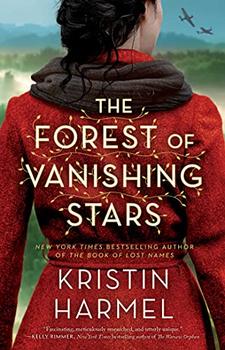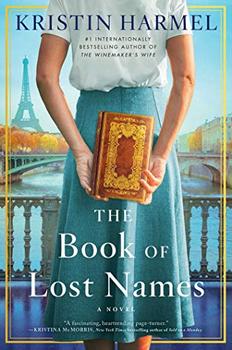Summary | Excerpt | Reviews | Beyond the book | Read-Alikes | Genres & Themes | Author Bio

Published by New Directions for the first time in English, Romain Gary's The Kites tells a story of heroism and hope as the inhabitants of the small town of Cléry in Normandy face occupation by the Nazis during World War II. It is also about two lovers separated and reunited over the course of the tragic events.
Ludo Fleury is nine years old, an orphan raised by his uncle Ambrose, when he meets Lila Bronicka, a wealthy Polish girl vacationing in Normandy with her family. Lila is eleven, a "severe blond apparition" and Ludo falls in love at first sight. Over the years, Ludo is accepted as an unofficial member of the Bronicka family, and he and Lila begin a romance. Ludo's biggest problem is his rival for Lila's attention, her austere Prussian cousin, Hans. When war arrives, Ludo's idyllic world and his future plans with Lila are torn asunder. Poland is annexed by Germany, and Ludo loses contact with the Bronickas. He joins Normandy's resistance movement (see Beyond the Book) and spends his days pining for Lila in between rescuing and hiding downed Allied aviators, never wavering in his certainty that he and Lila will be reunited.
The subjects of war and seemingly doomed love make for a great story (and have since the ancient Greeks at least), but beneath the central narrative are layers of symbolism that shed like an onion. The kite is the first and most prominent of these symbols, as the protagonist's uncle, Cléry's kitemaker and resident eccentric, describes poetically, "You have to hang on tight to them...they'll pull, and sometimes they break loose and fly too high—they take off in pursuit of the blue yonder and you never see them again." Ludo takes this lesson to heart and holds onto Lila with an iron grip, lest she be sucked into the sky and never seen again.
The kite is a symbol of the love of Ludo's life and also of the Fleury family who are, according to Uncle Ambrose, known for their "historical memory." To Ambrose, historical memory is about maintaining loyalty to France. He recalls a Fleury who was killed by a firing squad during the rule of the Paris Commune (the revolutionary government during the French Revolution), and Ambrose, Ludo's father, and their other brother all fought in World War I.
In addition to these larger symbols that establish the themes, Gary seasons the narrative with eloquent and deft figurative language. While visiting the Bronickas in Poland, Ludo watches Lila's brother play the piano by the Baltic Sea as the waves "ended in the sand before the piano, like a dog lying down at its master's feet." Later, Ludo and the family sit before the fireplace in the calm before the storm of war, and Ludo notes, "the fire leapt and roared with the voice of an old lion dreaming of its tamer's death."
The Kites' only flaw is that its principal characters are somewhat one-dimensional. Ludo is completely defined by his devotion to Lila; Uncle Ambrose is an archetype of French patriotism. Lila is a bit more complex, but she is missing for half of the novel, and when she returns, her charming joie de vivre has been decimated. Fortunately, some of Gary's secondary characters, including a chef accused of collaborating with the Germans and a brothel madam turned resistance leader, are more nuanced. Miranda Richmond Mouillot is a superb translator, ensuring through footnotes that the reader has access to Gary's many historical allusions and plays on words that require dual language explanation. The Kites is a moving love story that is an ode to the power of optimism.
![]() This review was originally published in The BookBrowse Review in January 2018, and has been updated for the
October 2019 edition.
Click here to go to this issue.
This review was originally published in The BookBrowse Review in January 2018, and has been updated for the
October 2019 edition.
Click here to go to this issue.

If you liked The Kites, try these:

by Kristin Harmel
Published 2022
The New York Times bestselling author of the "heart-stopping tale of survival and heroism" (People) The Book of Lost Names returns with an evocative coming-of-age World War II story about a young woman who uses her knowledge of the wilderness to help Jewish refugees escape the Nazis—until a secret from her past threatens everything.

by Kristin Harmel
Published 2021
Inspired by an astonishing true story from World War II, a young woman with a talent for forgery helps hundreds of Jewish children flee the Nazis in this unforgettable historical novel from the New York Times bestselling author of the "epic and heart-wrenching World War II tale" (Alyson Noel, #1 New York Times bestselling author) The Winemaker's ...




What really knocks me out is a book that, when you're all done reading, you wish the author that wrote it was a ...
Click Here to find out who said this, as well as discovering other famous literary quotes!
Your guide toexceptional books
BookBrowse seeks out and recommends the best in contemporary fiction and nonfiction—books that not only engage and entertain but also deepen our understanding of ourselves and the world around us.